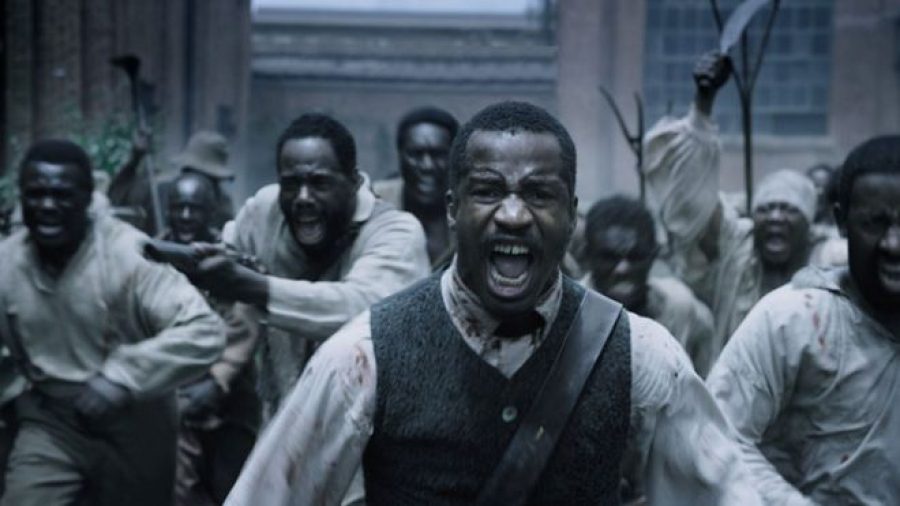
The most provocative thing about “The Birth of a Nation,” which opens Friday across South Florida, is its title. As any film scholar worth his Criterion Collection box sets will tell you, a 1915 movie called “The Birth of Nation” is widely recognized as the first feature film—a silent Civil War epic that invented much of the storytelling, cinematography and editing techniques we associate with movies, but with a racist agenda: It famously glorified the Ku Klux Klan and demonized its slave characters as savages. Its director, D.W. Griffith, would spend the rest of his artistic career atoning for it.
This time, nearly a century later, Nate Parker’s “The Birth of a Nation” aims to correct the record. A dramatization of Nat Turner’s slave uprising in 19th century Virginia, it’s not in any way of remake of the Griffith. It’s more a matter of canny theft and re-appropriation—a re-“Birth of a Nation” cleansed of the sins heretofore conjured by those four words.
Parker, who wrote and directed the film and also stars as Turner, channels the energy, intelligence and fire of a young Denzel Washington, in exactly the sort of role Washington would have relished if offered in the ‘80s. We see the pint-sized Turner’s evolution from child—where he’s singled out among slave children for his precocious literacy—to cotton field laborer, carriage driver and most significantly itinerant preacher, all under the auspices of a wealthy, God-fearing family. (Most of the white characters in “The Birth of a Nation” are corpulent, poorly groomed and dentally challenged, a reductive tendency that still feels pretty accurate).
The narrative smarts of “The Birth of a Nation” lie in its patience. Turner’s slave rebellion constitutes only a fraction of its running time. Most of the picture consists of an accumulation of weekly—if not daily—indignities and abuses that coalesce in the need for a micro revolution. Most controversially, Turner deploys the Bible as his guiding principle for his violent coup. As he preaches passages of love to bloodied, force-fed and malnourished slaves in the Virginia countryside, his words feel hollow, both to him and to us.
“The Birth of a Nation” is about, among the other things, the difficulty of reconciling Christian ideals with the kind of godless culture that could produce an abomination like slavery. For Turner, the only way to accomplish this is to adopt the most ravaging Old Testament passages: It’s a time for “your hills, your valleys, and your streams be filled with people slaughtered by the sword,” not “turn the other cheek.” This revolution, though short-lived, is a righteous one.
“The Birth of a Nation” knows it is Important, and in some respects seems engineered for Oscar consideration. Some scenes, such as the grim lashing of Turner for his “sin” of baptizing a white man who requested his services, echo the Best Picture-winning “12 Years a Slave,” while the rebellion sequences are as unrelentingly graphic as those in “Django Unchained,” that other slave drama from recent history.
But it ultimately makes a more grandiose statement than either of these predecessors, and its prestige trappings work against it. The score is emotionally manipulative where the power of the acting and the visuals are more than sufficient. A striking shot of slave bodies dangling from nooses, to the otherwise chilling deployment of Nina Simone’s “Strange Fruit,” is undermined by the paradoxical prettiness of the image; as Parker’s camera methodically tracks back to take in more bodies, the tableau resembles an organized art project more than a messy lynching. Furthermore, the movie’s denouement is drawn-out, slow-motioned and magisterial, where a more effective method would have been to simply present the action from a place of matter-of-fact detachment.
I guess, ultimately, I would have preferred Parker to take his stylistic cues more from Malick and Kubrick than from Spielberg and Zwick. But as a powerful evocation of our national shame, there is much in “The Birth of a Nation” that is essential for every American to absorb, even if its historical accuracy has been questioned. It’s a film of passionate, complex reckoning that registers as the fall’s first unquestionable Academy Award shoo-in.







